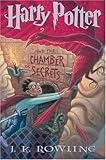
You know, Jess has lent me a lot of books over the last few years, some of which I have loved (The Hunger Games, The Disreputable History of Frankie Landau-Banks), some of which I have not-so-loved (The Forest of Hands and Teeth), and some of which I couldn't drag myself through (er, perhaps better not named, yes?). Usually, though, Jess is right on, so when she raved about Sea Change by Aimee Friedman, I was definitely willing to give it a try.
And I'm so glad I did.
Sea Change begins as Miranda, the protagonist, takes the ferry to Selkie Island, a small island off the coast of Georgia. Her grandmother, Isadora, has recently died and left the family summer house, the Mariner, to Miranda's mother, with whom Isadora had a falling out thirty years earlier. Miranda's mother, a successful New York surgeon, plans to clear out the house and sell it and has asked Miranda to help.
The story follows Miranda as she arrives on Selkie and learns about its mysterious history as well as her mother's. There are actually a number of mysteries within the story -- why did Miranda's mother have a falling out her own mother, Isadora? Why did Isadora leave the Selkie house to Miranda's mother? What happened between Miranda and her best friend in NY? -- and all are interesting and, ultimately, satisfyingly resolved.
The central mystery, of course, deals with the legend of Selkie island's original inhabitants -- are said legends based in reality? Friedman manages to keep Miranda (and the reader) guessing about this throughout, and I love that she leaves the answer to this question open-ended.
The most significant comment I can make about Sea Change is that it is beautifully written. This is a huge compliment, trust me -- a lot of YA these days ignores the style part in favor of plot-love-triangle-sparkly-vampire-love-shield, and so I really appreciate it when an author makes the effort to utilize evocative language and imagery. Friedman's writing style truly captures the mysterious atmosphere of Selkie Island while also developing it as a place steeped in Southern tradition, and this not only sets the stage for the story but also enriches it throughout the novel.
But atmosphere isn't everything. For example, Saundra Mitchell's Shadowed Summer (a novel similar to Sea Change in its style) is also brilliantly atmospheric, but the atmosphere takes center stage, at the expense of plot and character. In reading Sea Change, on the other hand, I enjoyed not only the language but also the development of the relationships Miranda, the protagonist, has with the other characters in the story, most prominently with her mother.
I'll admit to becoming annoyed with Miranda as the novel wore on; she is characterized as being scientific and logical, but this characterization is laid on slightly too thick at times and makes Miranda difficult to like. But by the end, I felt as though Miranda had grown and become less judgmental and more open-minded.
My biggest issue with the novel is Miranda's relationship with Leo. As Jess so eloquently put it last night over flourless chocolate waffle, we might be a little old for the typical romances depicted in YA, which go from zero-to-true-love far too quickly for my taste. I like to see a relationship truly develop, not magically pop into being, and I found Miranda's insta-love with Leo hard to believe. That said, Friedman writes some lovely scenes between Miranda and Leo, and I appreciate that she doesn't tie their storyline into a neat bow at the end.
Overall, Sea Change is one of the best YA novels I've read this year, and I'd highly recommend it. Of course, now I really, really want to go to Selkie Island (if it existed), but no more vacation for me this summer. Oh, well.













